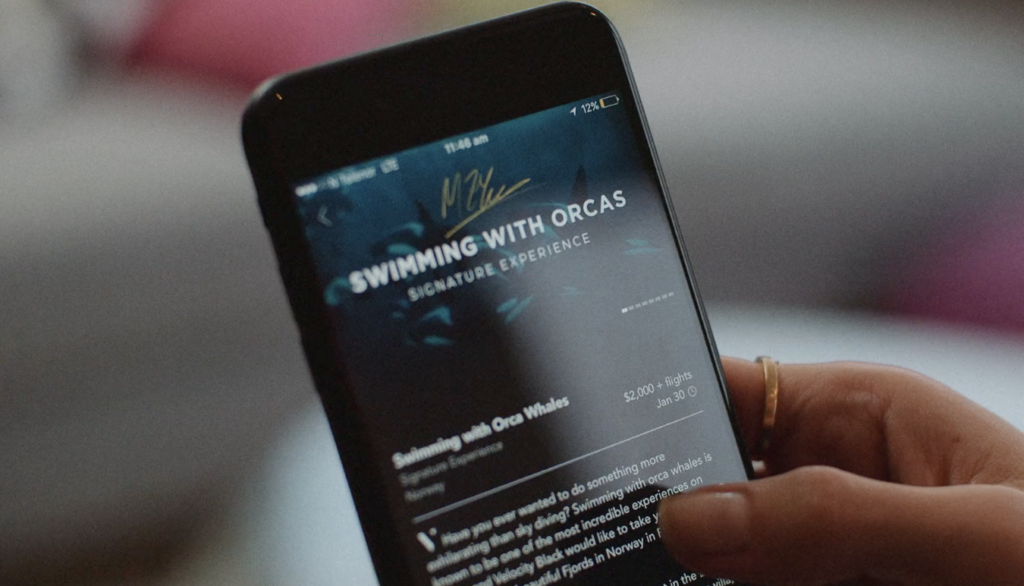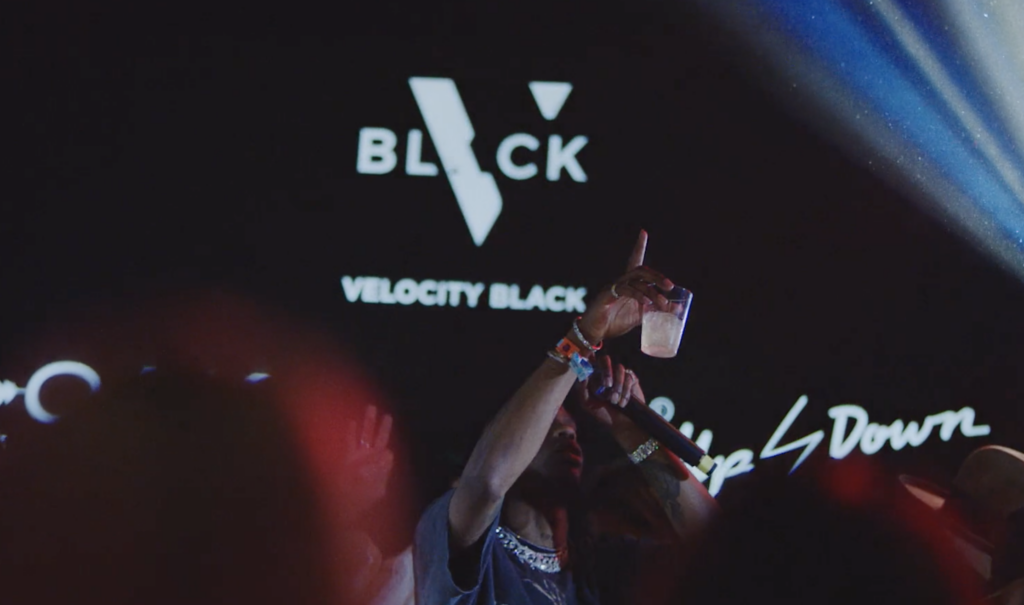Zia Yusuf has withdrawn from frontline politics almost as soon as he entered it. Over the past year, Reform’s former chair emerged from obscurity to become the right-hand-man of Nigel Farage – the odds-on favourite to be the next prime minister.
Yesterday, he announced his shock resignation following a series of public spats with the party’s MPs. He gave Farage just 10 minutes’ notice before tweeting out his decision.
Though Yusuf looks to have departed politics for good, it’s worth considering how he became such an influential figure in Farage’s operation, especially given his past work.
The former Reform chair has been written up in the media as the London private school kid and former banker who sold his business and forced his way into Farage’s top team through the sheer size of his wallet.
This doesn’t tell the whole story. DeSmog’s deep dive into Yusuf’s business history reveals a career catering to the extravagant tastes of the super-rich – a path to which he may now return following his departure from Farage’s outfit.
Yusuf is an orchestrator of opulence. Before Reform, he was a butler to the international elite – the “globalists” and “nomads” so often denounced by Farage.
As Yusuf said in an interview in 2016: “I wanted to build something that no one else on the planet is delivering, solely focused on the international customer who is time poor and who wants the richest experiences.”
A year earlier, alongside his business partner and former schoolmate Alex Macdonald, he launched Velocity Black – initially designed as an app connecting wealthy clients to the world’s best restaurants.
Their ambitions soon multiplied. They expanded their offering beyond restaurants, building an app that allowed their members to browse and book all manner of experiences, travel, and hospitality.
For those wanting a piece of the action, it didn’t come cheap.
As of 2018, the average purchase on the app was $2,500 – on top of the annual $2,800 membership cost, and the $900 one-off initiation fee. The largest purchase ever made on the app stood at $500,000 – roughly 17 times the typical UK salary at the time.
A year later, Bloomberg reported that the average net worth of those using Velocity Black was $7 million, while Yusuf claimed that their combined wealth stretched to $300 billion.
As The Independent wrote in 2018: “if you’re worrying about how much it costs to join [Velocity Black], then it’s probably not for you.”
So, while the Western world suffered from the long tail of the 2008 financial crisis, Yusuf had few concerns. As Bloomberg stated, Yusuf was confident that “no matter how bad it gets for everyone else, there will always be people willing to spend on the ultimate luxuries.”
But what exactly did these “ultimate luxuries” include?
Discounted private flights; dinner in an Egyptian pyramid; a VIP party at the Oscars; designing a pair of Christian Louboutin shoes with its head of design in Paris; a getaway to a private Italian island; swimming with Orca whales in Norway; travelling to the edge of space – Yusuf could get you any of these treats, for a hefty price tag.
Velocity Black even offered its members the opportunity to book a submarine trip to the Titanic site – a risky business, as the world witnessed in June 2023.

Credit: Velocity Black / Vimeo
Yusuf branded Velocity Black – which he sold in 2023 – as a never-ending dopamine hit. Its promotional videos were three-minute sensory overloads, full of fast cars, strobe lights, and the dimly lit interiors of private clubs. And – if you had the cash – you could access this world of eternal extravagance at the click of a button.
For Yusuf, it was about introducing his super-rich clients to new experiences, bought and accessed as easily as ordering a takeaway.
“We don’t just wait for you to tell us what you want,” Yusuf said in 2019. “We aspire to something greater, which is showing you things you didn’t even know you wanted.”
He added: “This isn’t an expensive country club membership that they use once a year. This is something that is embedded into their day-to-day lives.”
He pointed out that 40 percent of Velocity Black members opened their app every day. It was their virtual butler – an Ask Jeeves catered to the filthy rich.

Credit: Velocity Black / Vimeo
But while Yusuf was spoiling the 1 percent, the rest of the world wasn’t basking in luxury.
Velocity Black profited from the economic inequalities that were exacerbated during this period. Following the 2008 financial crash, wealth was increasingly hoarded by the already-wealthy – the natural target audience of Yusuf’s app – while the majority of people were squeezed.
According to the Joseph Rowntree Foundation, by 2018, about 4 million workers in the UK were in poverty, up from 3.1 million in 2010. By contrast, according to the Sunday Times Rich List, the number of UK billionaires rose from 43 in 2009 to over 150 by 2019, and their total wealth increased from around £99 billion to over £525 billion during that period.
Ironically, after nearly a decade serving the needs of the elite, Yusuf found a new target audience when he joined Reform – the people on the other side of the spectrum, who have borne the brunt of rising inequality.
“Working people in Britain feel betrayed; demoralised. They see the nation and the culture that we love being robbed from underneath us,” he said at Reform’s 2024 annual conference.
In these speeches, he never mentioned his work at Velocity Black.
Environmental Hypocrisy
In his conversion to populist politician, Yusuf also ditched his previous concern for climate change.
As Reform’s chair, Yusuf was a vocal critic of climate action. Reform campaigns to scrap clean energy investment, reduce taxes on fossil fuels, and ditch the UK’s commitment to reaching net zero emissions – and Yusuf spearheaded this agenda.
He has called net zero a “catastrophe”, claiming that it represents the “foolhardy economic disarmament of this country”, and he has labelled North Sea oil and gas reserves a “gift from God”.
However, this hasn’t always been his attitude. While running Velocity Black, Yusuf was a budding environmentalist.
The entrepreneur regularly praised his millennial members for having an awareness “of the wellbeing of the planet and the effect of humanity on the environment and communities”.

Credit: Money20/20.tv / YouTube
An archived page on the Velocity Black website, titled ‘Velocity Impact’, even boasted that the app’s “global membership community” could be channelled “to help improve the lives of those less fortunate and preserve our planet”.
In an interview with The Independent in 2018, Yusuf was keen to mention one member’s life-changing experience: a giraffe collaring adventure with a team of conservationists.
“He came out of it a changed man,” Yusuf boasted. “His company went green overnight and he killed all single-use plastic cups. And our platform made it happen.”
As of yesterday, he ran a party whose leader claims that carbon dioxide is not pollution.
Having once built a business pampering billionaires, Yusuf spent the last year attempting to champion the working class. It was a bold transformation – from concierge to crusader. It will be interesting to see if he returns to his old career – and even reheats his environmentalism – now he’s left Farage’s clique.
The post What Next for Zia Yusuf – the Butler to Billionaires Who Became Reform’s Ringleader? appeared first on DeSmog.
This post has been syndicated from DeSmog, where it was published under this address.
